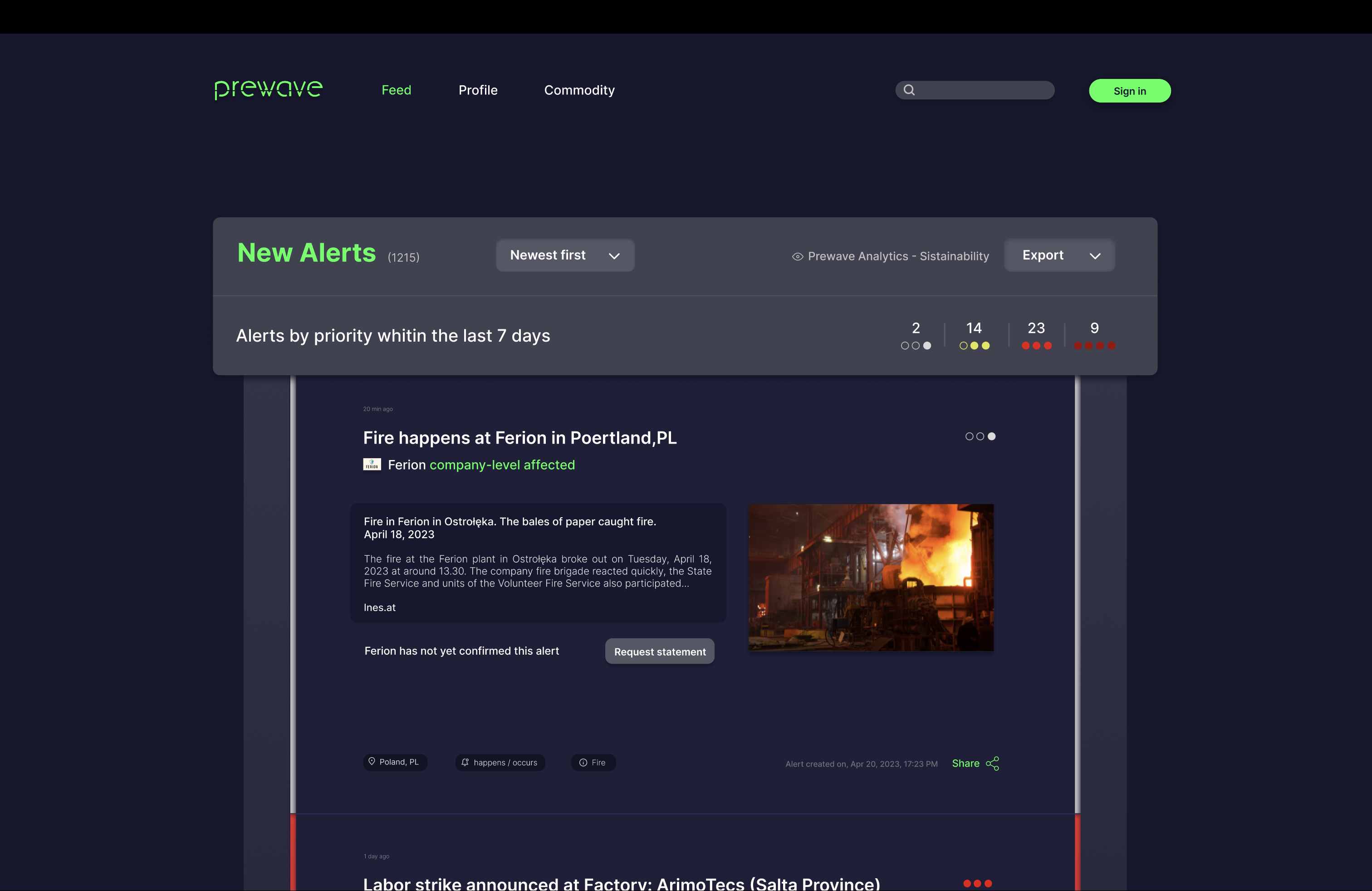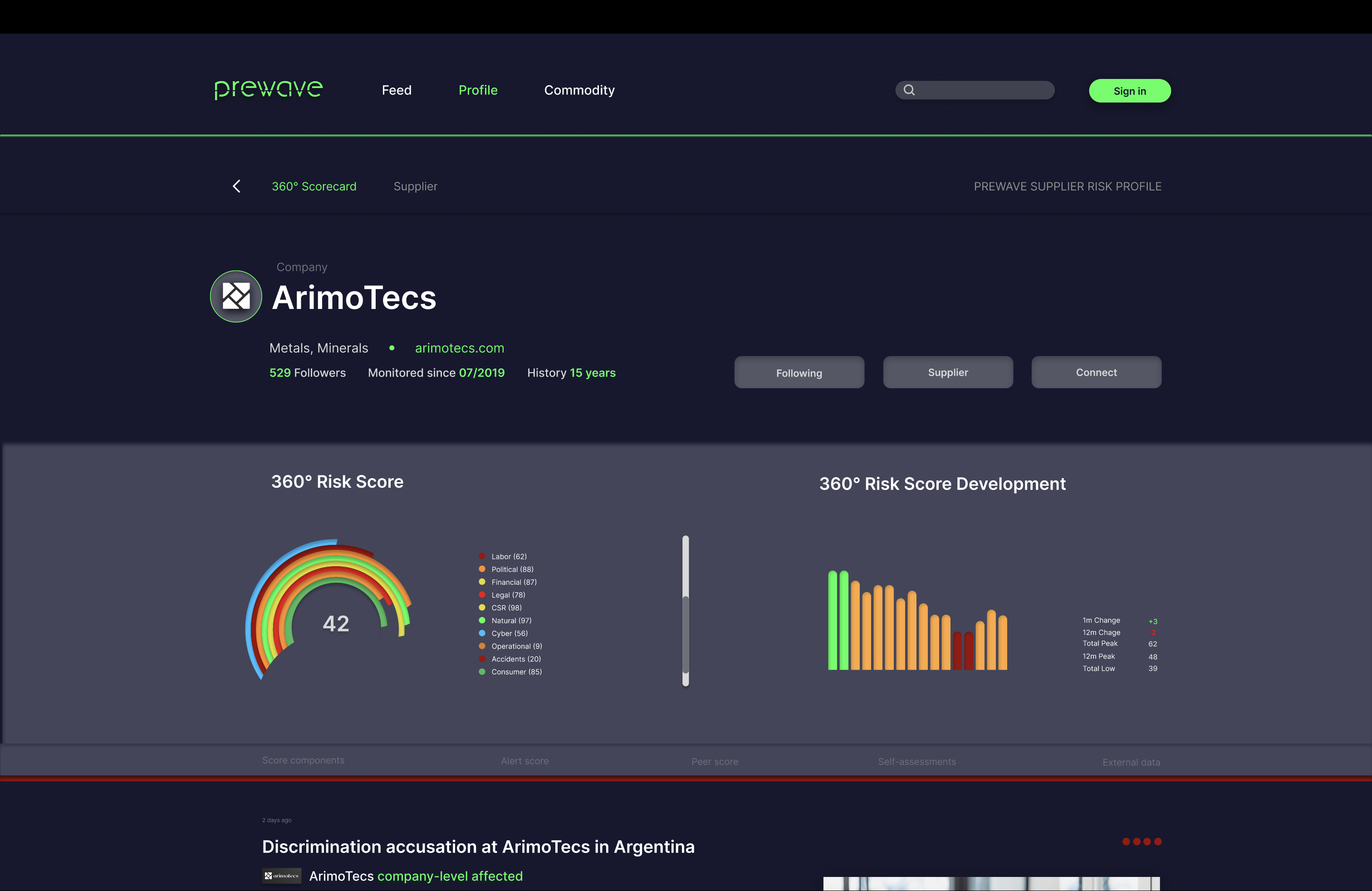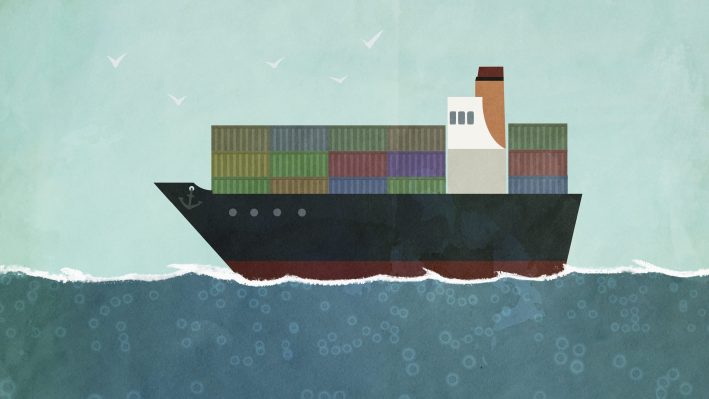Despite the investor caution narrative permeating the startup world throughout the economic downturn, certain startup-types have been a little more impervious to market conditions. The global supply chain was one of the major industrial casualties of the pandemic, so it perhaps goes without saying that companies tackling issues related to the global supply chain would remain an alluring proposition for otherwise hesitant venture capitalists.
In the past couple of months alone, we’ve seen Germany-based IntegrityNext ingest $109 million to help companies audit their supply chains for ESG (environmental, social and governance) compliance; Texas-based Overhaul haul in $73 million for a supply chain security platform; San Marcos-based Everstream secure $50 million to bring predictive insights to supply chains; France’s Sesamm snap up $37 million to give corporates ESG insights into their supply chain; and India’s Pando pull in $30 million to grow its freight management platform.
Today, it’s Prewave‘s turn to demonstrate that the global supply chain is still one of the hottest tickets for raising VC bucks. The Austrian startup revealed that it has raised €18 million ($20 million) in what it’s calling a Series A+ round of funding, following on from its €11 million ($12.3 million) Series A round eight months ago.
For its latest cash injection, Prewave has also attracted European VC heavyweight Creandum, which has previously backed the likes of Spotify, Klarna and iZettle.
Risk factors

Prewave founders Harald Nitschinger and Lisa Smith. Image Credits: Prewave
Founded out of Vienna in 2017 by Harald Nitschinger and Lisa Smith, Prewave touts itself as a holistic supply chain risk platform that spans “every phase of the risk lifecycle,” through identifying, analyzing, mitigating and reporting these risks.
For example, companies such as BMW, Lufthansa and PwC use Prewave to monitor every entity in their supply chain via channels such as social media, news reports and other data sources to understand not only what is happening within companies in their supply chain, but also externalities such as earthquakes, floods, political unrest, lawsuits or worker strikes — anything that could impact the global transfer of goods.

Prewave feed. Image Credits: Prewave
The company says it has developed its own proprietary “crawler” that finds publicly available information across dozens of languages.
“Having our own crawler instead of relying purely on external supply chain data providers allows us to continuously expand and improve our coverage,” Smith explained to TechCrunch by email. “We also connect to several social media platforms and for specific event types we use external data sources as for example USGS (United States Geological Survey) for earthquake data or GDACS (Global Disaster Alert and Coordination System) for weather information. The combination of all of these data points ensures a broad coverage of both local and global supply chain risk events.”
Prewave then crunches all the data and delivers a dynamic supplier risk score that changes in line with all the new data it ingests.

Prewave supplier page with 360-degree scorecard. Image Credits: Prewave
Supply (chain) and demand
There are a number of reasons why demand for supply chain insights is skyrocketing, beyond simply improving their bottom line by averting disruptions. These include legal obligations, for example Germany recently passed a new supply chain due diligence law that makes it the responsibility of large companies to track human rights violations and environmental risks through their supply chain. A similar directive is currently being proposed for the broader European Union (EU) too.
And then there is the simple fact that consumers increasingly expect the companies they do business with to have at least some moral and ethical principles, and aren’t purely beholden to shareholder sentiment.
“Supply chain technology has withstood the economic headwind in recent years because it has become increasingly vital for companies to optimize their operations, adapt to external risks and reduce costs within their supply chain,” Nitschinger told TechCrunch by email. “The pandemic, for example, exposed critical vulnerabilities in global supply chains, making it clear that businesses need to invest into technologies that improve visibility and sustainability, predict potential disruptions and enable more agile and responsive strategies. As businesses continue to face economic challenges, the importance of supply chain risk management technology is only expected to grow.”
With another $20 million in the bank, Prewave is planning to double down on a recent growth that has seen its headcount increase from 20 employees at the start of last year to more than 100 today, which Nitschinger says “mirrors the substantial revenue increase” it has seen over the same period.
Aside from lead backer Creandum, Prewave’s latest investment included contributions from Ventech, Kompas, Seed+Speed, Segnalita, Speedinvest, Working Capital Fund and Xista Science Ventures.
